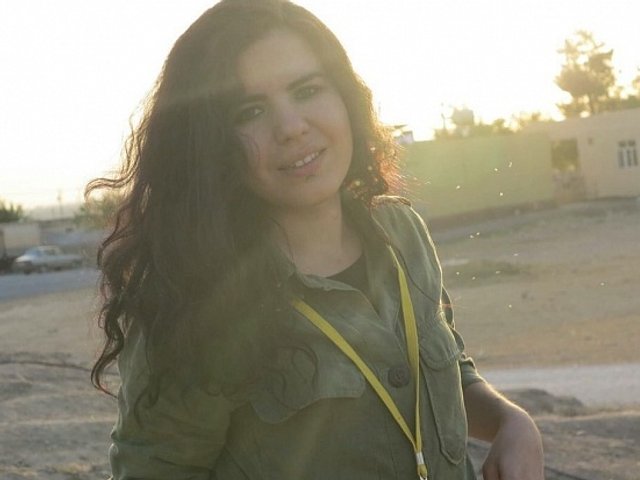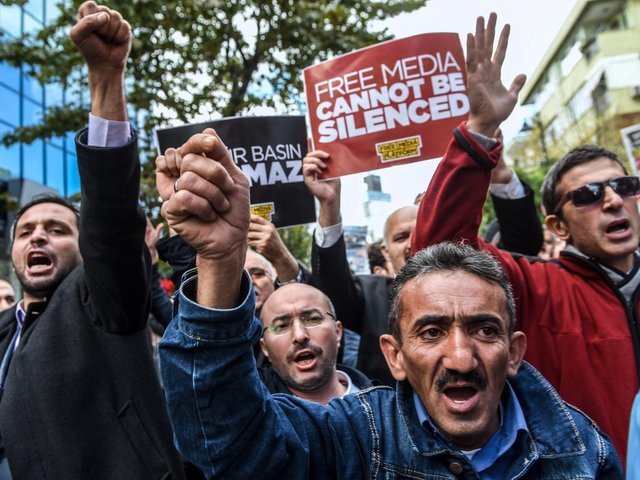Artists, newspaper cartoonists and cultural figures are among the 35,000 people who have been detained in Turkish president Recep Tayyip Erdogan’s crackdown after the failed military coup in July. A further 82,000 people, including journalists and bureaucrats, have been dismissed or suspended from their jobs.
Onur Erem, a Turkish journalist whose partner, the artist and writer Zehra Dogan, has been imprisoned for the past month, says that artists are being persecuted. Prosecutors have reportedly said that Dogan’s art and writing is evidence of her membership of the Kurdistan Workers’ Party (PKK), a militant leftist group that fights for Kurdish rights in Turkey, which the government has labelled a “terrorist organisation”. Erem says Dogan continues to paint while in prison, but describes her detention as “insane” and a “threat to artistic expression”.
Some say that foreign artists and curators are reluctant to travel to Turkey. “Cultural projects, especially political ones, are under threat,” says the artist and writer Pinar Ögrenci. “It doesn’t mean they are directly under threat from the government, but we—the artist and activist community in Turkey—feel like we are being controlled.”
The leading Turkish artist Taner Ceylan says that some international projects have been postponed for security reasons, but that galleries and exhibitions remain open for business as usual. “Artists are still producing, and foundations and patrons are supporting them,” he says. “But I’m sure it’s tense choosing a subject for your project, and who you partner with or are supported by.”
The sixth Sinopale Biennial of contemporary art, which was due to open in July in the north of the country, was postponed. In a statement posted on the biennial’s website, the organisers say: “As we believe in democracy and the will of the people, we are certain that our country will move on from this highly sensitive time as soon as possible.” The event may run next year, coinciding with the 15th Istanbul Biennial in the autumn. Meanwhile, earlier this year, the organisers of Art International, the Istanbul-based contemporary art fair, decided to postpone this year’s edition, which was scheduled to take place this month. On 5 September, the organisers of the Çanakkale Biennial announced that the event has been cancelled. The Istanbul Design Biennial is still scheduled to open on 22 October (until 4 December).
A number of other international events are going ahead despite the security risks, but in a reduced capacity. Ali Güreli, the chairman of Contemporary Istanbul, which launches its 11th edition in November, says he is expecting fewer exhibitors at the art fair this year.
“However, we have also been genuinely humbled by the declarations of support we have received for the fair, Istanbul and Turkey from collectors in India to artists in France and galleries in Australia who are determined to still participate and attend.”
Despite the prevailing crackdown on freedom of expression, projects are even being launched this autumn. Alt Art Space in Istanbul is collaborating with the Moving Image art fair to host New Realities, an exhibition of virtual reality art opening on 23 September (until 25 September).



